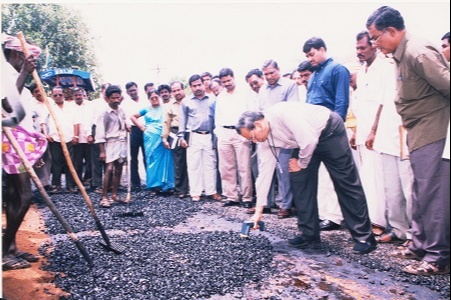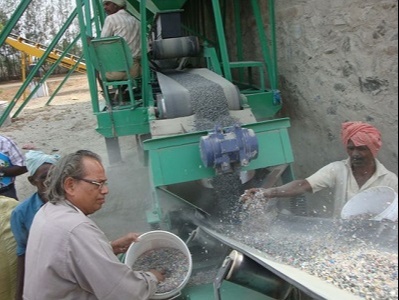Plastic, Friend or Foe?
It is a well known fact that plastic is very difficult to dispose properly. If it is not managed and processed then it can become a cause of huge concern in a multitude of ways. So many people who care about the environment see plastic as a bad thing. But not Dr. Rajagopalan Vasudevan, a scientist who has worked for the most part of life in waste management.
Popularly known as the ‘Plastic Man of India’, Dr. Vasudevan, understood the importance of plastic and the implications of the widespread use of plastic in waste management. He viewed plastic waste as a resource that could be used in a variety of construction and developmental activities.
The innovation that changed the process of road making in the country
Keeping this in mind, Dr. Vasudevan after years of research, developed an innovative technology and process to use plastic waste in the road making process. According to him, waste plastic can act as a good binding agent. He developed an innovative process that could convert waste plastic to a substance to replace bitumen in the road making process. The result? Road are cheaper to build, more durable and last for a long time. Also, it can drastically reduce the amount of plastic waste going into landfills.

After receiving the patent for his technology, Dr. Vasudevan had a lot of offers from the middle east to buy the patent and the technology from him outright. Some offers were worth more than Rs. 2,000 crore. But he knew that if the technology went into the wrong hands it would not have the impact that he desired.
Commitment to the nation and the cause
It was Dr. Vasudevan’s ethics and commitment to his nation that prevented the innovative technology of plastic roads from migrating to other countries. Patenting processes were slow and cumbersome in India but “Plastic Man” says: “But I think it is my duty to serve my country first and therefore I gave it to the Indian government for free… the bonding of plastic with bitumen is an ideal option for roads that withstand most of the torrential rains…”. It serves the dual purpose of increasing the quality of roads and also solves the problem of plastic removal”.

Consequently, the technology was placed at the order of his nation. To date, plastic roads extend in Wellington, Chennai, Puducherry, Hindpur (Andhra Pradesh), Kolkata, Goa, Mumbai, Shimla, Thiruvananthapuram, Vadakara, Calicut, Kothamangalam and Kochi.
Plastic roads decrease one tone of bitumen for every kilometer of road, saving Rs.60,000 per km. It is a revolutionary technology.

